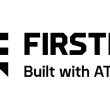STUCK IN NEUTRAL
More than three years after first being proposed, rebanding of the 800 MHz airwaves appears to be a reality. Nextel Communications has signed off on the deal, and the Transition Administrator has submitted a schedule for the massive project that is set to begin this summer.
While some hoped the Jan. 31 release of the TA’s schedule would create “full speed ahead” momentum for the rebanding process, most attendees at the Association of Public-Safety Communications Officials (APCO) Winter Summit were left scratching their heads, wondering exactly how the rebanding process would work.
Specifically, questions arose regarding the information that must be submitted to the TA, the source of replacement radios, the new spectrum 800 MHz users would receive and how to pay those doing the initial inventory work — the first step in the process.
In addition, perhaps the biggest concern was how to negotiate and execute contracts that would be approved by the 800 MHz licensee, Nextel and the TA, which consists of a team of officials from systems integrator BearingPoint, radio frequency consultancy Baseline Telecom and the law firm of Squires, Sanders & Dempsey.
The Schedule
While new issues continue to arise, some long-lingering questions have been answered. First, Nextel officially has accepted the terms of the FCC’s 800 MHz order, so rebanding definitely will occur (see MRT March news section).
Second, the TA has established a three-year schedule to execute rebanding. With an official start date of June 27, the schedule calls for rebanding to be done in four staggered “waves” in an attempt to balance workloads throughout the country, according to Joe Boyer of Baseline Telecom.
These waves also are designed to address several other realities affecting rebanding, including networks that are linked and need to be completed in a similar time frame. In cases of networks that overlap various waves — for example, FedEx’s nationwide 800 MHz network — the entire network would be re-tuned within the first wave that affects the network, Boyer said.
Completing the first wave will address many of the biggest problem areas — 55% of all interference complaints were generated by regions included in this wave. Meanwhile, the rebanding schedules for the border regions in the fourth wave will depend upon the U.S. reaching band-plan treaty agreements with Canada and Mexico, Boyer said.
The staggered schedule was adopted when it became evident that extensive time would be needed to execute rebanding in a calculated manner that would minimize mistakes and encourage a smooth transition. Each wave is expected to take about two-and-half years to complete, Boyer said.
“You can’t do a region in five or six months; it’s just not practical,” he said.
Each wave is designed as a four-step process. First, negotiations between licensees and Nextel — or between those parties and the TA — will be conducted to clear channels 1 to 120, followed by the implementation of the reconfiguration. Six months after negotiations for channels 1 to 120 start, preliminary negotiations can begin to clear the affected NPSPAC channels, although negotiations aren’t scheduled to begin formally until six months later. Again, actual rebanding of the NPSPAC channels will follow the negotiations (see proposed sequence chart on page 18).
According to the TA’s schedule, 800 MHz rebanding will be completed in the U.S. by the middle of 2008. However, all officials emphasized that the ability to finish the fourth wave in the scheduled time frame only can occur if treaties with Canada and Mexico are executed in a timely manner — something that may be difficult, particularly with Mexico (see sidebar).
Where to turn?
Throughout the 800 MHz proceeding, the overriding priority has been to ensure that public-safety agencies using the 800 MHz band did not have to spend their own money on any rebanding expenses — even in a reimbursement scenario. And the FCC’s 800 MHz order achieves that purpose, according to Robert Gurss, APCO legal and government affairs director.
“You don’t have to go out and ask your county for additional money and get reimbursed,” Gurss told attendees at APCO’s Winter Summit on Jan. 31. “Just say when it needs to get done, and the bill will get sent to Nextel.”
From a big-picture perspective, that’s true. However, how 800 MHz licensees get to that point is unclear right now. At the very least, it appears that multiple steps will be required of licensees before Nextel will pay any bills associated with rebanding.
While Nextel is responsible for paying all rebanding bills — not just retuning and replacement of radios, but all administrative and legal costs, as well — each 800 MHz licensee is required to negotiate an agreement that establishes the expected costs of rebanding the licensee. After that occurs, Nextel will pay the bills.
But disagreement exists regarding with whom licensees should negotiate. FCC officials envision licensees contact the TA to cut a deal. Gurss disagrees and is advising APCO members to deal directly with the source of the funds, Nextel.
“I think it’s more efficient to negotiate directly with Nextel,” Gurss said.
However, cutting a deal with Nextel does not necessarily mean the licensee has completed its work, according to Brett Haan of BearingPoint, a member of the TA team. In the end, any agreement between Nextel and an 800 MHz licensee still must be approved by the TA, which will determine if it is reasonable and fair to other licensees, he said.
“As soon as you’re in discussions or negotiations, contact us,” Haan said. “We need to know of negotiations as soon as possible, for workflow purposes.”
But even getting to the negotiating table may prove to be a challenge for some licensees. Nextel and the TA want to conduct primary negotiations with a licensee only after the licensee has completed its inventory of all equipment that has be re-tuned or replaced.
This may be the most important step for the licensee, which is responsible for reporting all equipment that uses the license, Gurss said. Radios that are used on a daily basis should be easy to identify and inventory, but APCO’s biggest fear is that backup radios that only occasionally use the license — for example, radios stored in a back room of a volunteer fire department — will be overlooked in the inventory process, he said.
“The last thing we want is to get this done and have someone pull radios out of a closet in an emergency and not have them work and maybe interfere with someone new who is using the channels,” Gurss said. “It’s very important that we capture every radio out there. … Licensees need to make sure all subscribers are aware of this and brought into the process.”
Another factor that makes the inventory process crucial is that Nextel would not be required to pay to re-tune or replace any equipment left off the list after the TA approves it.
As important as the inventory process is, TA officials are not yet clear how those providing the inventory services would be contracted and paid. Because the inventory work predates the negotiations, sending the bill directly to Nextel would not be appropriate. Meanwhile, if an 800 MHz licensee insists that no money come out of its pocket, it may be difficult to get someone — be it an internal employee working overtime or a third-party contractor — to do the critical inventory work with no assurance about who would pay and when.
Gurss said he is hopeful the TA will establish a “streamlined” method that will allow licensees to get clearance to receive payment for inventory work prior to contracting with an inventory service provider.
Devil’s in the details
However, no such procedure exists currently, but it is one of many detail-oriented policies and procedures the TA team is expected to tackle before rebanding kicks off officially June 27. For instance, BearingPoint’s Haan said the TA is trying to establish a template regarding the way in which licensees identify the work that needs to be done and who will do it. In addition, Baseline Telecom’s Boyer said the group still is trying to define comparable spectrum for relocated users, although he emphasized that all users will have an improved situation without Nextel’s interference.
One piece of good news for 800 MHz licensees is that it appears they will get to determine who will do the re-tuning work on their equipment.
“In my view, the (public-safety) agency should decide,” said Lance Johnson, Nextel’s directory of public safety. “It’s your system; you should decide who touches your radios.”
But inking a contract apparently will be more complicated than normal. Representatives for several licensees attending the APCO Winter Summit expressed concern that it would be difficult to secure contracts that had to be negotiated with Nextel and approved by the TA before being signed by a contractor.
“You just changed every contract that’s been done with Nextel to date,” said Alan Tilles, an attorney for several 800 MHz licensees, upon hearing that the TA could nix any existing deals between licensees and Nextel.
In addition, questions abound concerning what radios will be re-tuned. During the 800 MHz proceeding, Motorola made a filing with the FCC that stated about 30% of all radios would have to be replaced because they could not be reprogrammed — a document that quickly cast doubt about the amount of money that would be required to execute rebanding.
But Nextel’s Johnson said “most radios will be reprogrammed.”
“I’ve seen Motorola’s list,” Johnson said, acknowledging that he had not seen an equipment list for M/A-COM or EFJohnson. “In Motorola’s case, most radios can be re-tuned.”
And, in the case of those radios that do need to be replaced, many licensees were surprised to hear Johnson say that Nextel hopes to provide replacement radios from its warehouse.
“You mean Nextel’s going to give me radios from their junk warehouse to replace what I’ve got?” said one 800 MHz user who requested anonymity. “I’m not sure I’m comfortable with that.”
The comfort level was not helped by Johnson’s acknowledgement that some of the radios from the Nextel warehouse might not be as good as new.
“No company is perfect,” Johnson said. “If you get a radio that doesn’t work, send it back, and we’ll send you another.”
Johnson said Nextel realizes that this could become a “potential point of contention.”
The notion that replacement radios might not be new has been supported by an FCC philosophy that “if you have a Chevy now, you’re not going to come away with a Cadillac” after rebanding. But Gurss said the measure should be reliability.
“If you have an old car that you’ve maintained and it runs well, you may not be comfortable getting a slightly newer model that you don’t know the history of,” Gurss said.
System upgrades
Meanwhile, a Dade County, Fla., official asked whether the county could use the money earmarked for rebanding as “seed money” for the planned upgrade of its 800 MHz radio system, instead of installing a new system and then paying to have it re-tuned — or paying to have the old system re-tuned, only to replace it shortly thereafter.
Initially, Ramona Melson of the FCC’s Wireless Telecommunications Bureau expressed opposition to the idea, saying any changes should be done prior to rebanding. But Nextel’s Johnson said his company would be willing to negotiate such an agreement if the TA agreed it was appropriate. BearingPoint’s Haan said Dade County is “not alone” in making such a request, but no policy had been created at this point.
Gurss expressed optimism that the TA ultimately will allow rebanding funds to be used for upgrades, if the licensees can ensure that their upgrades do not delay the larger rebanding effort.
“If you can do the upgrade concurrent to when you were going to do the re-tuning, I think it can be done,” Gurss said. “That makes sense, that would be more efficient and you should be able to use the money you were going to get for rebanding.”
Treaties needed along the borders
According to the Transition Administrator’s schedule, 800 MHz rebanding is supposed to be completed in mid-2008, but officials are quick to note that this time table can be met only if radio-frequency treaties can be reached with Canada and Mexico.
Without the treaties, rebanding work cannot begin in the border states, most of which are included in Wave 4 to give the maximum amount of time to the U.S. State Department to forge treaties before impacting the 800 MHz reconfiguration schedule.
“A quarter of the population and a quarter of the workload are based on the completion of these treaties,” said Baseline Telecom’s Joe Boyer, a member of the TA team.
TA officials expect a U.S. treaty with Canada will be easier to reach than one with Mexico. In fact, Region 19 — a region with a Canadian border that includes Massachusetts, Rhode Island and Connecticut — is included in the first wave.
Boyer said the exception was made for Region 19 because the Canadian/U.S. border in that area “tends to be lightly licensed.” It would not be practical to make such a time table for more densely populated areas such as the Vancouver/Seattle region.
In addition, Boyer said the TA team believes a treaty with Canada can be negotiated in a reasonable time period. Boyer’s optimism is based on the fact that Canada already has the same frequency alignment as the U.S. and already has reserved the NPSPAC target frequencies for U.S. uses, so the change should not be difficult from a technical standpoint.
This is a stark contrast to the technical situation in Mexico, where the NPSPAC target frequencies already are allocated for Mexican uses, Boyer said. In addition, there is a 12.5 KHz offset in the alignment of frequencies along the U.S./Mexico border, meaning each frequency change in U.S. rebanding could impact two frequencies, Boyer said.
“The band with Mexico is going to be very complex,” Boyer said.
— Donny Jackson

















